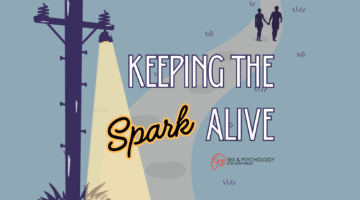Would Your Ideal Relationship Be Monogamous Or Open? 1,000 Americans Weigh In
November 4, 2016 by Justin Lehmiller
Would your ideal relationship be completely monogamous, completely open, or somewhere in between? One thousand Americans adults were recently asked this question as part of a national YouGov survey and the results were fascinating.
“Nearly half of men and one-third of women would, ideally, like to be practicing some form of non-monogamy.”
Specifically, the question was: “On a scale where 0 is completely monogamous and 6 is completely non-monogamous, what would your ideal relationship be?” 52% of men and 69% of women selected completely monogamous. This means that nearly half of men and one-third of women would, ideally, like to be practicing some form of non-monogamy. However, just 8% of men and 7% of women said they wanted to be in a completely open relationship. This means that most of the people who are into non-monogamy want there to be at least some rules or restrictions in place (as Dan Savage would say, they want to be “monogamish”).
Overall, men were more into the idea of non-monogamy than women, but gender wasn’t the only demographic feature that predicted non-monogamous desires–age did, too. The younger people were, the more interest they expressed in non-monogamy. Specifically, 49% of younger folks said that their ideal relationship would be non-monogamous compared to 30% of the over-65 crowd.
In addition, Black and Hispanic participants were more open to non-monogamy than were Whites. Likewise, Democrats were more interested in non-monogamy compared to Republicans.
Another interesting finding from this survey is that more people wanted to be non-monogamous than were currently practicing non-monogamy. Specifically, whereas 48% of men and 31% of women said that their ideal relationship would be non-monogamous to some degree, just 34% of men and 24% of women said that their current relationship was non-monogamous.
The fact that one-third of men and one-quarter of women said that their current relationship was non-monogamous is, of course, noteworthy in and of itself. It suggests that non-monogamy is a pretty common practice in America today.
One limitation of this survey is that it didn’t define what it means to be “monogamous” or “non-monogamous.” I mean, what counts as being “monogamous” anyway? Different people might have different definitions because not everyone defines sex the same way. Furthermore, “non-monogamy” is something that can be consensual (i.e., everyone knows about it and agrees to it) or non-consensual (i.e., someone is cheating). Those are, of course, two very different things! Future surveys on this topic would benefit from defining these terms for participants and clearly distinguishing between consensual and non-consensual non-monogamy.
Limitations aside, these results are still illuminating because they suggest that the desire for non-monogamy—and the practice of it—may be a lot more common than previously thought.
Want to learn more about Sex and Psychology? Click here for more from the blog or here to listen to the podcast. Follow Sex and Psychology on Facebook, Twitter (@JustinLehmiller), or Reddit to receive updates. You can also follow Dr. Lehmiller on YouTube and Instagram.
Image Credit: 123RF
You Might Also Like:

Dr. Justin Lehmiller
Founder & Owner of Sex and PsychologyDr. Justin Lehmiller is a social psychologist and Research Fellow at The Kinsey Institute. He runs the Sex and Psychology blog and podcast and is author of the popular book Tell Me What You Want. Dr. Lehmiller is an award-winning educator, and a prolific researcher who has published more than 50 academic works.
Read full bio >


